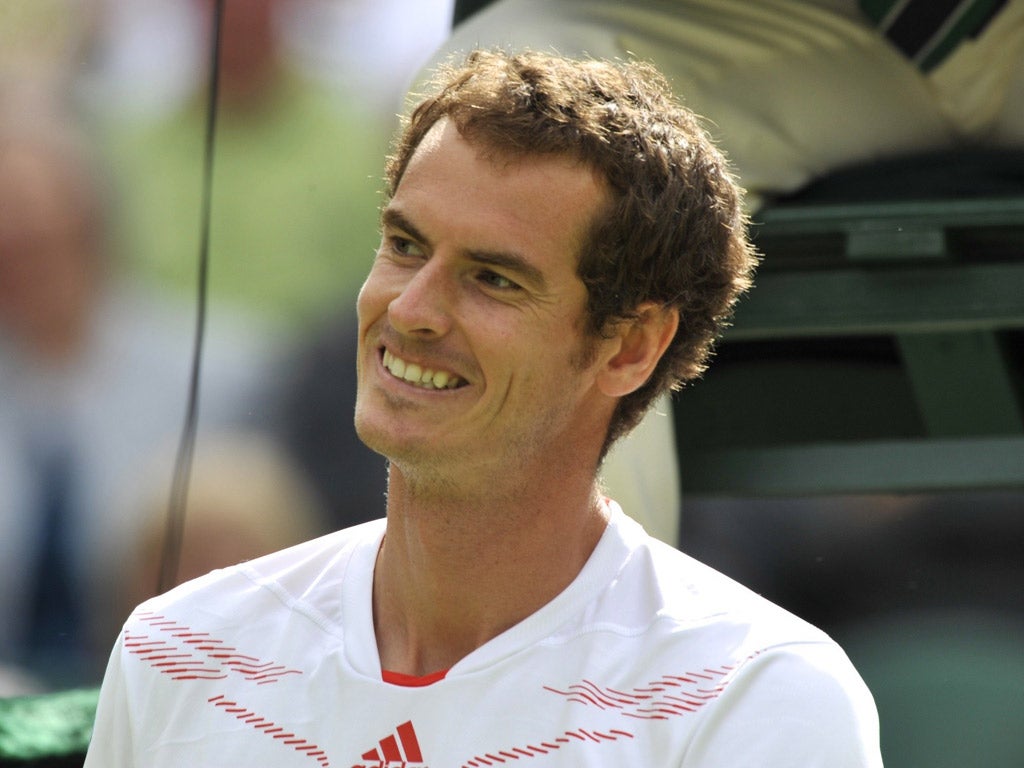The Last Word: Winners don't make ideal sons-in-law
Murray knows no holds are barred when it comes to becoming a Grand Slam champion

What makes a winner? Which qualities define a champion? On this day of days, when the matrons of Middle England will light a candle for Andy Murray and say a silent prayer for his salvation, such questions are loaded with an almost mystical relevance.
There's no God Particle in sport, no Higgs boson effect on the Centre Court. This isn't a Eureka moment for British tennis, whatever the Lawn Tennis Association's opportunists and apologists claim. It's a man at work.
There is a huge contrast between the twee rituals of Wimbledon and the elemental individualism of Murray's sport. His closed character, which encourages perceptions of surliness and self-absorption, is an asset. Generations of ideal son-in-laws have been found wanting in such a gladiatorial environment.
Recurrent controversies, a reflection of the moral ambivalence of modern sport, tell us virtue is not necessarily rewarded with victory. No one can win 16 Grand Slams, as Roger Federer has done, by being as innocent as a country curate.
The Swiss is where he is because of who he is. He embodies the six Cs – character, commitment, competitiveness, composure, consistency and confidence – found in the DNA spiral of successful elite athletes.
He is the finished article, graceful, lithe, popular and powerful. He presents the perfect image, manages to disguise the aggressive narcissism which has been channelled into his attempt to return to No 1.
To match him, and end the genuflection before the legend of Fred Perry, Murray must reach a higher state of consciousness, play with forensic intelligence and a controlled fury. He must channel a pathological hatred of failure into positive energy, ignoring the distraction of a supportive crowd while remaining open to its benefits.
Winners are exceptionally driven. Academic studies show they share an acute attention to detail, an acknowledgement of their accountability and an obsession with marginal improvement. Will tends to be more important than skill.
The best play in a vacuum, blocking out random chance and human error. A momentary lapse in concentration – such as that, at the start of the third set, which threatened Murray in his semi-final against Jo-Wilfried Tsonga – can leave an athlete flat and fragile. It is vital to refocus quickly.
Only at the point of victory can Murray succumb to humanity. The demons will be chirping, seeking self-doubt. Steve Peters calls it the phenomenon of the inner chimp.
We first met before the Athens Olympics, when Peters's day job was as a clinical psychologist at Rampton high-security hospital. He is now sport's mind mechanic of choice, working wonders with Olympic champions such as Chris Hoy and Victoria Pendleton. The England rugby team are his new pet project.
Intriguingly, given his experience of peeling away the layers of a mass-murderer's personality, Peters highlights the mildly psychopathic tendencies of many elite athletes. They are ruthless; strategic in their behaviour. They take tough decisions with little remorse, manipulate those around them and ignore anxiety in stressful situations.
Winners have a deep-seated belief in their ability to prevail which can manifest itself as arrogance. It does not make for an easy life. Roy Keane, for example, was contemptuous of the concept of heroism and personal glory. Some, like Ayrton Senna, seek spiritual solace, a divine dimension. Others retain a connection with their childhood. Wayne Gretsky, ice hockey's icon, skated on a rink built by his father and illuminated by lights strung on a wire from a neighbours' garage. He says: "The feelings of that backyard never left me."
Murray's journey began in Dunblane, which has as much in common with Wimbledon as Ulan Bator. Is it too much to hope it will be completed today in suburbia's sacred temple?
Keep Calm and Carry On, Constance.
Football decency goes by the board
Groundhog Day starred yet another badge-kissing, soundbite-spewing footballer, using ambition as a masking agent for avarice.
The poison-pen letter from Robin van Persie to Arsenal was particularly smug, painfully transparent. But its unintended consequence was mildly amusing.
Enter, stage left, the Uzbek billionaire and Arsenal's second-largest shareholder Alisher Usmanov, who railed against the discreet greed of old-school types such as Lady Nina Bracewell-Smith, who made £116 million from her inherited Arsenal shares. Peter Hill-Wood, Arsenal's Old Etonian chairman, gallantly rushed to her defence, before admitting that his own windfall, £5.5m, was "nice".
Usmanov's criticism of the club's strategy was opportunist, but in a wider sense he had a point. Boardroom warriors won't get out of bed for less than eight figures when it comes to selling the family silver. Martin Edwards took £120m out of Manchester United. David Moores left Liverpool with £88m. John Hall, self-styled father of the Geordie Nation, sold his interests in Newcastle for £95m. Freddie Shepherd made do with £50m. They retain airs and graces and presume a right to speak down to the masses.
Give me a good old grasping footballer any day.
Oh Danny Boy
The actor Danny Dyer is pwopa nawty. He drops aitches like bombs and has been plugging Saturday's pub brawl between David Haye and Dereck Chisora. I'm told to expect more violence outside the ring than inside it at Upton Park. Stay safe, geezah.
Join our commenting forum
Join thought-provoking conversations, follow other Independent readers and see their replies
Comments
Bookmark popover
Removed from bookmarks